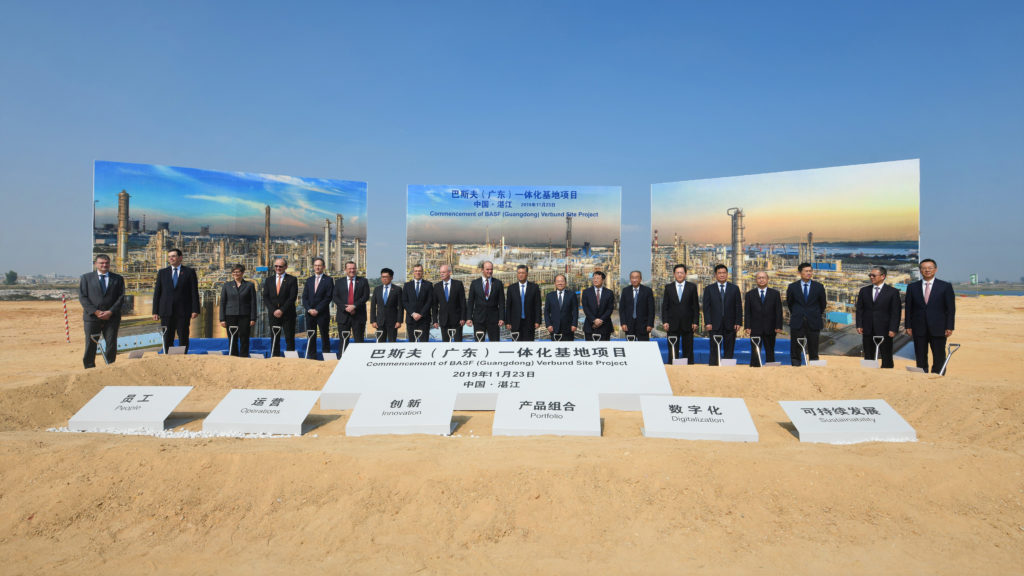On 23 November 2019, BASF officially launched its smart Verbund project in Zhanjiang, Guangdong province, China, and commenced building its first plants. According to the company, this marks a milestone of BASF’s USD 10 billion investment project announced in July 2018. The first plants will produce engineering plastics and thermoplastic polyurethane (TPU) to serve the increasing needs of various growth industries in the southern China market and throughout Asia.
“We are pleased to see our mega-investment project in China is progressing,” said Dr. Martin Brudermüller, Chairman of the Board of Executive Directors, BASF SE. “We are determined to support our customers in southern China drive growth with innovative products and sustainable solutions. By utilizing the latest digital technologies and applying the highest safety standards, the new Verbund site will be a role model for sustainable production contributing to the development of a circular economy in China.”
“Zhanjiang is a perfect location for BASF to further strengthen our footprint of local production in China,” said Dr. Stephan Kothrade, President Asia Pacific Functions, President and Chairman Greater China, BASF. “The smart Verbund site will form a solid foundation for a world-class industrial cluster in Zhanjiang and establish stronger business connections between South China and other Asian countries.”

By 2022, the new engineering plastics compounding plant will supply an additional capacity of 60,000 t/y in China, bringing BASF’s total capacity of these products in Asia Pacific to 290,000 t/y. The new capacity will enable BASF to meet the growing demand of its customers, particularly in the automotive, electronics and new energy vehicles (NEV) industries. BASF said it plans to implement a comprehensive smart manufacturing concept at the Verbund site based on cutting-edge technologies. The new site will utilize automated packaging, high-tech control systems, and automated guided vehicles. With the Zhanjiang Verbund site, BASF will also contribute to the advancement of the local community. The company is forming strategic partnerships with several local technical institutions to develop young technical talents.
BASF Integrated Site (Guangdong) Co. Ltd, BASF’s new wholly-owned subsidiary, has also been officially formed. This entity will oversee the operations of the new Verbund site.
BASF signed the first Memorandum of Understanding for the Verbund site with the Guangdong Provincial Government in Berlin, Germany, in July 2018. In January 2019, the company signed a Framework Agreement setting out further details of the plan. The Verbund site in Guangdong would be BASF’s largest investment, estimated up to USD 10 billion upon completion, and would be operated under the sole responsibility of BASF. The integrated value chain will connect upstream and downstream plants from basic chemicals to more consumer-oriented products and solutions, serving growth sectors like consumer goods and transportation. The site would ultimately be the third-largest BASF site worldwide, following Ludwigshafen, Germany, and Antwerp, Belgium. The first plant producing engineering plastics compounds is expected to be operational by 2022, and the whole Verbund site is planned to be completed by 2030.
